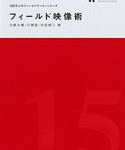 東京外国語大学アジア・アフリカ言語文化研究所、基幹研究「アフリカ文化研究に基づく多元的世界像の探求」では、ウガンダ・マケレレ大学から気鋭の若手研究者をむかえ、「アフリカにおけるテクノロジーのインパクトと脅威について考える」と題し2015年度第5回公開セミナーを開催します。FENICSも共催です。ふるってご参加ください2015年12月15日Ugandan公開セミナ(⇒Pdfポスター)
東京外国語大学アジア・アフリカ言語文化研究所、基幹研究「アフリカ文化研究に基づく多元的世界像の探求」では、ウガンダ・マケレレ大学から気鋭の若手研究者をむかえ、「アフリカにおけるテクノロジーのインパクトと脅威について考える」と題し2015年度第5回公開セミナーを開催します。FENICSも共催です。ふるってご参加ください2015年12月15日Ugandan公開セミナ(⇒Pdfポスター)
Core Project “Pluralistic World Understanding based on African Studies” Open Meeting
“ Reflecting on the Impact and Threat of Technology in Africa”
Gordon, AINEBYONA (Makerere University,Uganda)
“The Impact of Technology on Crime in Uganda”
Christine, MBABAZI MPYANGU (Makerere University, Uganda)
“Technology as a Threat to African Norms and Values”
Date and Time:15th Dec 2015 (2015年12月15日) 16:00~18:00
Venue: Room 221, Research and Lecture Building (kenkyū kōgitō)
東京外国語大学研究講義棟221
Access: Tama sta. SEIBU Tamagawa Line 西武多摩川線「多磨駅」
http://www.aa.tufs.ac.jp/ja/about/access
参加費:無料 Admission: Free
使用言語:英語 Language :English
主催:基幹研究「アフリカ文化研究に基づく多元的世界像の探求」
【Lecture 1】
Dr. Christine Mbabazi Mpyangu
‘Technology as a threat to African values and Norms’
<Abstract>
Technology has found its place on the globe generally and on the African continent in particular. It is influencing almost all spheres of life in different ways. It is appreciated as an answer to several challenges of development, education, job execution among many others in society. Regardless of that, technology is seen as a threat to African values and norms. This is on the premise that many people’s life styles have greatly been affected by the available services, devices and applications for consumption. African values and norms of togetherness, marriage, family life, relationships, work ethics and interaction as well as means of instruction are gradually being forgotten, neglected, despised and undermined by the people and especially the young generation. This discussion is aimed at sharing the level to which technology is appreciated on one hand and much more highlight how it is emerging as a threat to African values and norms. An attempt to discuss how this threat can be mitigated is also made.
【Lecture 2】
‘An Asset or Liability? The Impact of New Technology on the Contemporary Society’
Mr. Gordon Ainebyona
<Abstract>
The advancements in technology have not only brought changes in our society but also the environment of crime which in some of its new forms poses a serious threat to society. There is no doubt that the wide spread use of personal computers and high speed internet significantly increases computer related crimes. Whereas the criminals have exploited the new technologies to facilitate and maximise criminal activities, the criminal justice system on the other hand uses it to control criminal activities. Although high technology crimes are becoming increasingly sophiscated, the law enforcement agencies in most countries appear to be ill prepared to confront the challenge. Unlike the individuals from the developed nations who have benefited from the use of technology, the citizens from low income countries are counting the cost. The contest between the state and the criminals to gain technological edge therefore creates urgency to the need to develop appropriate responses to technology related crimes.
<Profile>
Dr. Christine Mbabazi Mpyangu
Lecturer, Department of Religion and Peace Studies, School of Liberal and Performing Arts, College of Humanities and Social Sciences, Makerere University.
PhD, Science of Religion School of Mission and Theology, Stavanger Norway
“The use of rituals in the reintegration of female ex-child soldiers in Northern Uganda.”
M.A Theology, School of Mission and theology, Stavanger Norway.
B.A (A), Makerere University
Mr. Gordon Ainebyona
Assistant Lecturer, Department of Sociology and Anthropology, School of Social Sciences, Makerere University.
University of Cambridge (MPhil in Criminology)
My research interests revolve around Crime Prevention and Control – Terrorism and Counter-terrorism, Crime and Technological Change, Gender and Crime.
主催:基幹研究「アフリカ文化研究に基づく多元的世界像の探求」
Sponsored by Core Project “Pluralistic World Understanding Based on African Studies“, ILCAA
Contact: wakana@aa.tufs.ac.jp
Jointly sponsored by the Japanese Association for African Studies and Nonprofit Organization FENICS
共催 :NPO法人 FENICS http://www.fenics.jpn.org/


